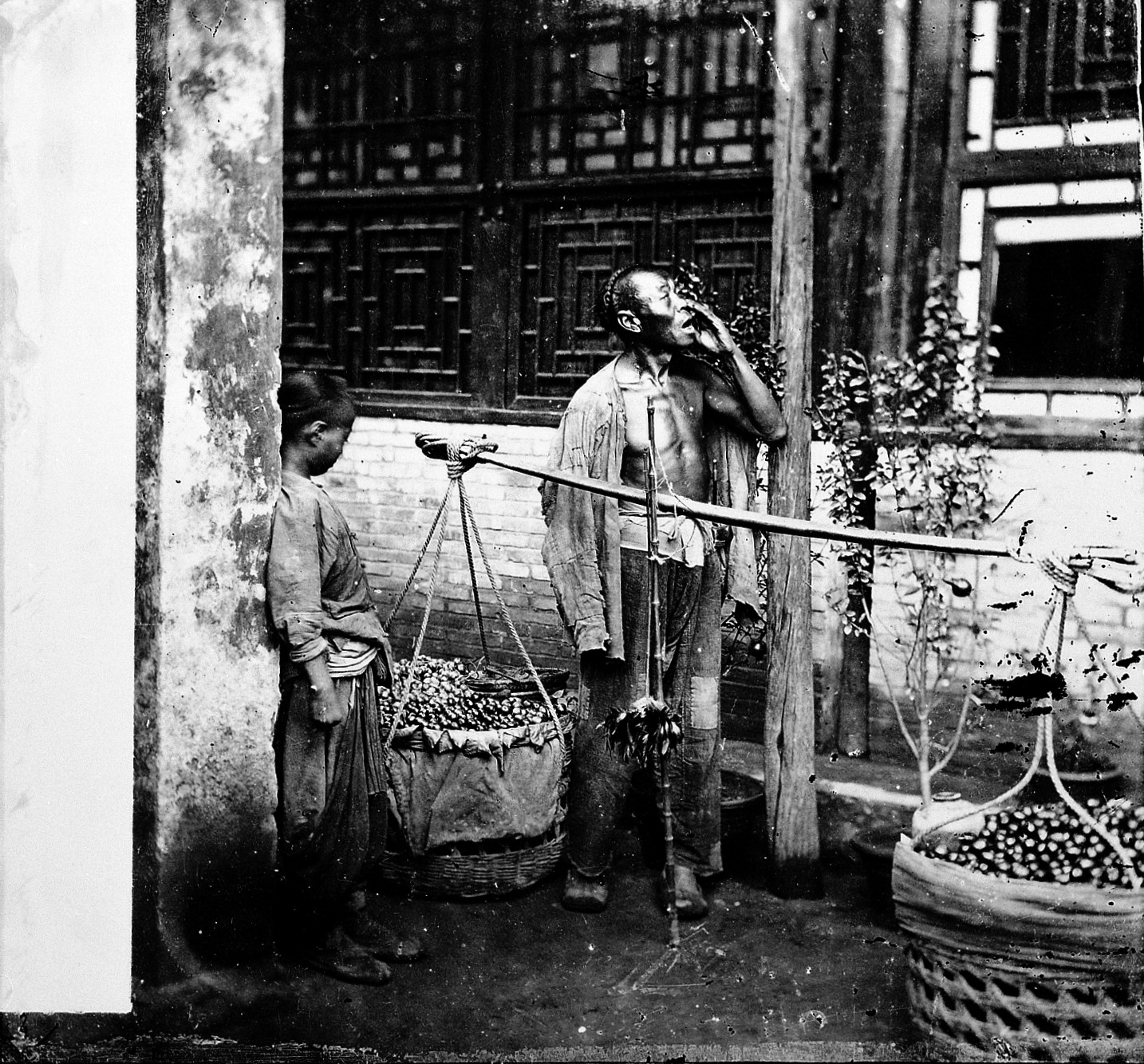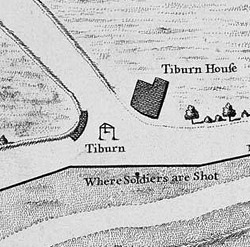|
Marcy Clay
Marcy Clay alias Jenny Fox (d. 1665), was an English thief and highwayrobber, and subject of the 1665 pamphlet ''The high-way woman, or, A true and perfect narrative of the wicked life, and deplorable death of Marcy Clay''. Biography Marcy Clay is believed to have been born in Dorset as Jenny Fox, to parents who were travelling pedlars. She began as a shoplifter in London, working with a gang of thieves and was quite successful. Due to her increasing notoriety in London, she returned to the south-west of England to engage in "country trade", stealing from markets and fairs. She later took up highway robbery, dressed as a man, at first to pay off a £30 debt. Having discovered how much more lucrative highway robbery was, she continued in this pursuit. She became famous in her time as the subject of an anonymously written pamphlet, recording her crimes and praising her skill with sword and pistol. Clay eventually returned to London to take up shoplifting again, and the pamphlet ... [...More Info...] [...Related Items...] OR: [Wikipedia] [Google] [Baidu] |
Highwayman
A highwayman was a robber who stole from travellers. This type of thief usually travelled and robbed by horse as compared to a footpad who travelled and robbed on foot; mounted highwaymen were widely considered to be socially superior to footpads. Rid, Samuel. "Martin Markall, Beadle of Bridewell," in ''The Elizabethan Underworld'', A. V. Judges, ed. pp. 415–416. George Routledge, 1930Online quotationSpraggs, pp. 107, 169, 190–191. Such criminals operated until the mid- or late 19th century. Highwaywomen, such as Katherine Ferrers, were said to also exist, often dressing as men, especially in fiction. The first attestation of the word ''highwayman'' is from 1617. Euphemisms such as "knights of the road" and "gentlemen of the road" were sometimes used by people interested in romanticizing (with a Robin Hood–esque slant) what was often an especially violent form of stealing. In the 19th-century American West, highwaymen were sometimes known as road agents. In Australia, ... [...More Info...] [...Related Items...] OR: [Wikipedia] [Google] [Baidu] |
Pamphlet
A pamphlet is an unbound book (that is, without a Hardcover, hard cover or Bookbinding, binding). Pamphlets may consist of a single sheet of paper that is printed on both sides and folded in half, in thirds, or in fourths, called a ''leaflet'' or it may consist of a few pages that are folded in half and Saddle stitch stapler, saddle stapled at the crease to make a simple book. In the "International Standardization of Statistics Relating to Book Production and Periodicals", UNESCO defines a pamphlet as "a non-periodical printed publication of 5 to 48 pages, excluding covers, published in a specific country and available to the public," while a book is "a non-periodical printed publication of at least 49 pages, excluding covers." These definitions are intended solely for UNESCO's book production statistics. Etymology The word ''pamphlet'' for a small work (''opuscule'') issued by itself without covers came into Middle English as or , generalized from a twelfth-century Elegiac c ... [...More Info...] [...Related Items...] OR: [Wikipedia] [Google] [Baidu] |
Dorset
Dorset ( ; Archaism, archaically: Dorsetshire , ) is a Ceremonial counties of England, ceremonial county in South West England. It is bordered by Somerset to the north-west, Wiltshire to the north and the north-east, Hampshire to the east, the Isle of Wight across the Solent to the south-east, the English Channel to the south, and Devon to the west. The largest settlement is Bournemouth, and the county town is Dorchester, Dorset, Dorchester. The county has an area of and a population of 772,268. Around half of the population lives in the South East Dorset conurbation, which contains three of the county's largest settlements: Bournemouth (183,491), Poole (151,500), and Christchurch, Dorset, Christchurch (31,372). The remainder of the county is largely rural, and its principal towns are Weymouth, Dorset, Weymouth (53,427) and Dorchester, Dorset, Dorchester (21,366). Dorset contains two Unitary authorities in England, unitary districts: Bournemouth, Christchurch and Poole (BCP) ... [...More Info...] [...Related Items...] OR: [Wikipedia] [Google] [Baidu] |
Peddler
A peddler (American English) or pedlar (British English) is a door-to-door and/or travelling vendor of good (economics), goods. In 19th-century United States the word "drummer" was often used to refer to a peddler or traveling salesman; as exemplified in the popular play ''Sam'l of Posen; or, The Commercial Drummer'' by George H. Jessop. In England, the term was mostly used for travellers hawker (trade), hawking goods in the countryside to small towns and villages. In London, more specific terms were used, such as costermonger. From antiquity, peddlers filled the gaps in the formal market economy by providing consumers with the convenience of door-to-door service. They operated alongside town markets and fairs where they often purchased surplus stocks which were subsequently resold to consumers. Peddlers were able to distribute goods to the more geographically-isolated communities such as those who lived in mountainous regions of Europe. They also called on consumers who, for w ... [...More Info...] [...Related Items...] OR: [Wikipedia] [Google] [Baidu] |
Shoplifting
Shoplifting (also known as shop theft, shop fraud, retail theft, or retail fraud) is the theft of goods from a retail establishment during business hours. The terms ''shoplifting'' and ''shoplifter'' are not usually defined in law, and generally fall under larceny. In the retail industry, the word '' shrinkage'' (or ''shrink'') is used to refer to merchandise often lost by shoplifting. The term ''five-finger discount'' is an euphemism for shoplifting, humorously referencing stolen items taken "at no cost" with the five fingers. The first documented shoplifting started to take place in 16th century London. By the early 19th century, shoplifting was believed to be primarily a female activity. In the 1960s, shoplifting began to be redefined again, this time as a political act. Researchers divide shoplifters into two categories: boosters (professionals who resell what they steal), and snitches (amateurs who steal for their personal use). Shoplifters range from amateurs acting on ... [...More Info...] [...Related Items...] OR: [Wikipedia] [Google] [Baidu] |
London
London is the Capital city, capital and List of urban areas in the United Kingdom, largest city of both England and the United Kingdom, with a population of in . London metropolitan area, Its wider metropolitan area is the largest in Western Europe, with a population of 14.9 million. London stands on the River Thames in southeast England, at the head of a tidal estuary down to the North Sea, and has been a major settlement for nearly 2,000 years. Its ancient core and financial centre, the City of London, was founded by the Roman Empire, Romans as Londinium and has retained its medieval boundaries. The City of Westminster, to the west of the City of London, has been the centuries-long host of Government of the United Kingdom, the national government and Parliament of the United Kingdom, parliament. London grew rapidly 19th-century London, in the 19th century, becoming the world's List of largest cities throughout history, largest city at the time. Since the 19th cen ... [...More Info...] [...Related Items...] OR: [Wikipedia] [Google] [Baidu] |
Tyburn
Tyburn was a Manorialism, manor (estate) in London, Middlesex, England, one of two which were served by the parish of Marylebone. Tyburn took its name from the Tyburn Brook, a tributary of the River Westbourne. The name Tyburn, from Teo Bourne (stream), Bourne, means 'boundary stream'.Gover, J. E. B., Allen Mawer and F. M. Stenton ''The Place-Names of Middlesex''. Nottingham: English Place-Name Society, The, 1942: 6. The parish, and probably therefore also the manor, was bounded by Roman roads to the west (modern Edgware Road) and south (modern Oxford Street). The junction of these was the site of the famous Tyburn Gallows (known colloquially as the "Tyburn Tree"), now occupied by Marble Arch. For many centuries the name Tyburn was synonymous with capital punishment: it was the principal place for execution for London and Middlesex criminals and convicted Treason, traitors, including many religious martyrs. In the 18th century it was also known as "God's Tribunal". Hangings at ... [...More Info...] [...Related Items...] OR: [Wikipedia] [Google] [Baidu] |
Newgate Prison
Newgate Prison was a prison at the corner of Newgate Street and Old Bailey, just inside the City of London, England, originally at the site of Newgate, a gate in the Roman London Wall. Built in the 12th century and demolished in 1904, the prison was extended and rebuilt many times, and remained in use for over 700 years, from 1188 to 1902. In the late 18th century, executions by hanging were moved here from the Tyburn gallows. These took place on the public street in front of the prison, drawing crowds until 1868, when they were moved into the prison. For much of its history, a succession of criminal courtrooms were attached to the prison, commonly referred to as the "Old Bailey". The present Old Bailey (officially, Central Criminal Court) now occupies much of the site of the prison. History In the 12th century, Henry II instituted legal reforms that gave the Crown more control over the administration of justice. As part of his Assize of Clarendon of 1166, he required th ... [...More Info...] [...Related Items...] OR: [Wikipedia] [Google] [Baidu] |
1665 Deaths
Events January–March * January 5 – The ''Journal des sçavans'' begins publication of the first scientific journal in France. * February 15 – Molière's comedy '' Dom Juan ou le Festin de pierre'', based on the Spanish legend of the womanizer Don Juan Tenorio and Tirso de Molina's Spanish play '' El burlador de Sevilla y convidado de piedra'', premieres in Paris at the Théâtre du Palais-Royal. * February 21 – In India, Shivaji Bhonsale of the Maratha Empire captures the English East India Company's trading post at Sadashivgad (now located in the Indian state of Karnataka). * February – In England, Dr. Richard Lower performs the first blood transfusion between animals. According to his account to the Royal Society journal ''Philosophical Transactions'' in December, Dr. Lower "towards the end of February... selected one dog of medium size, opened its jugular vein, and drew off blood, until its strength was nearly gone. Then, to ma ... [...More Info...] [...Related Items...] OR: [Wikipedia] [Google] [Baidu] |
English Highwaymen
English usually refers to: * English language * English people English may also refer to: Culture, language and peoples * ''English'', an adjective for something of, from, or related to England * ''English'', an Amish term for non-Amish, regardless of ethnicity * English studies, the study of English language and literature Media * ''English'' (2013 film), a Malayalam-language film * ''English'' (novel), a Chinese book by Wang Gang ** ''English'' (2018 film), a Chinese adaptation * ''The English'' (TV series), a 2022 Western-genre miniseries * ''English'' (play), a 2022 play by Sanaz Toossi People and fictional characters * English (surname), a list of people and fictional characters * English Fisher (1928–2011), American boxing coach * English Gardner (born 1992), American track and field sprinter * English McConnell (1882–1928), Irish footballer * Aiden English, a ring name of Matthew Rehwoldt (born 1987), American former professional wrestler ... [...More Info...] [...Related Items...] OR: [Wikipedia] [Google] [Baidu] |







